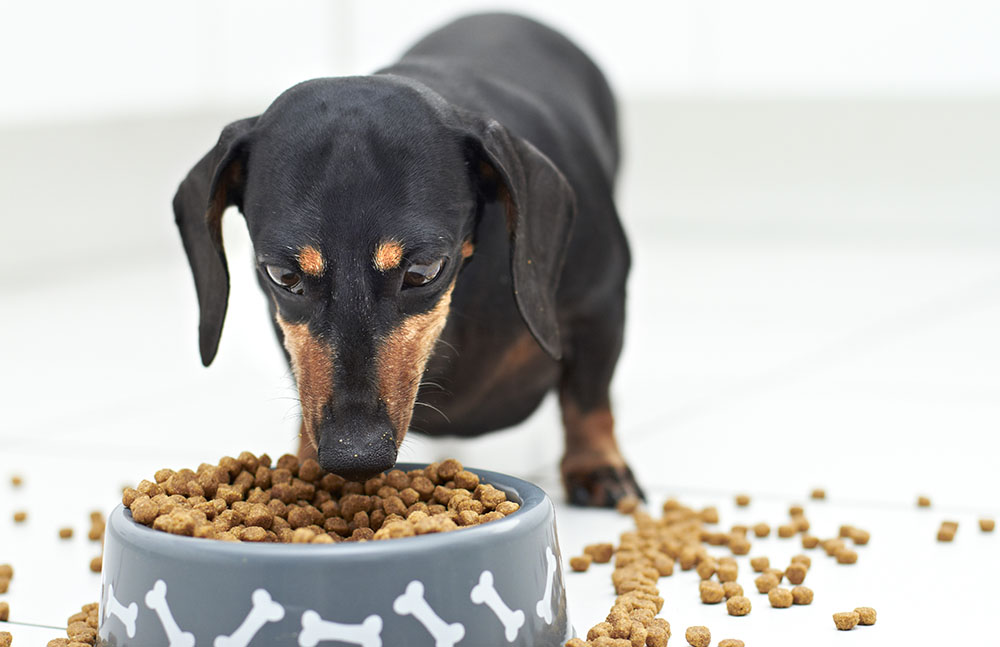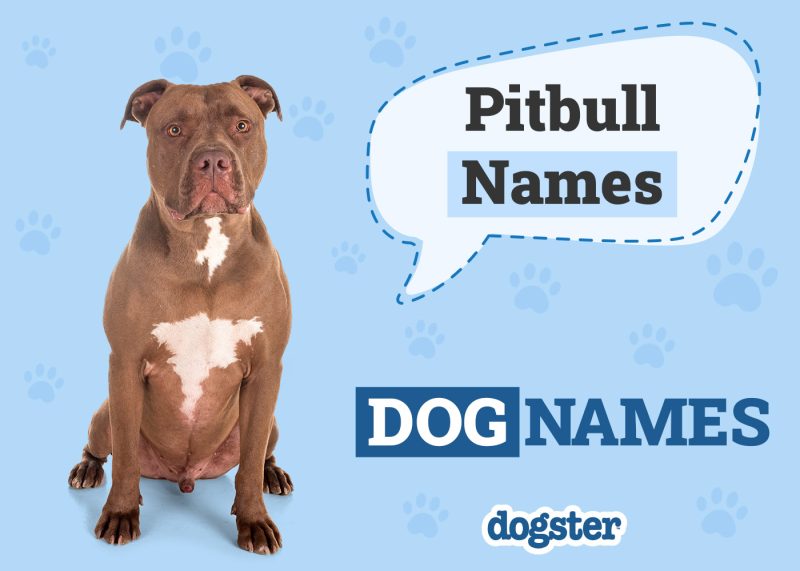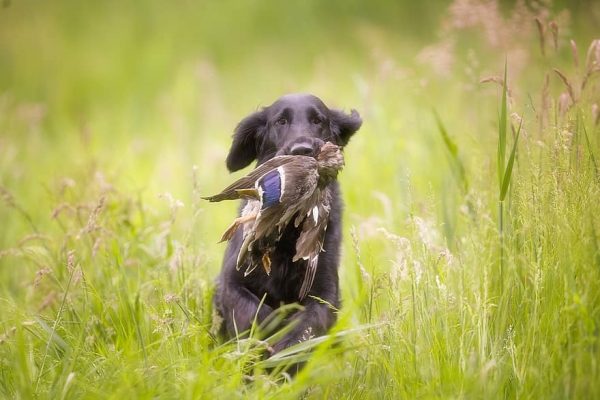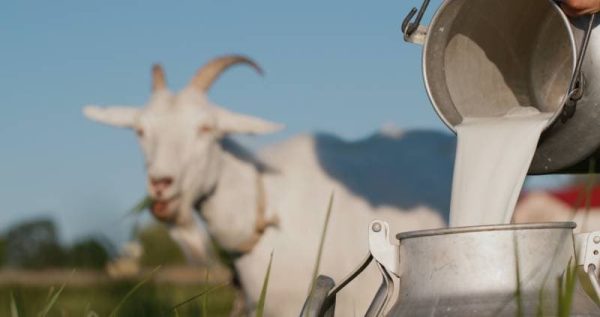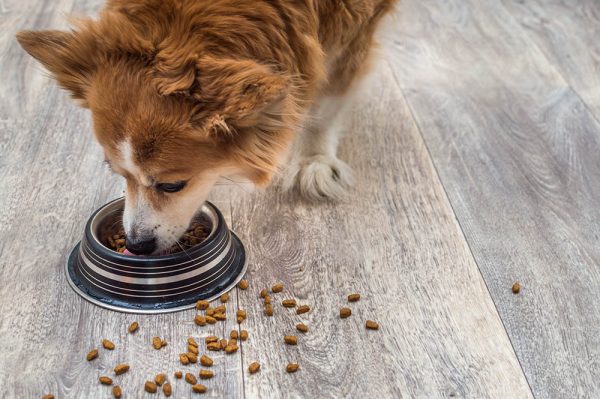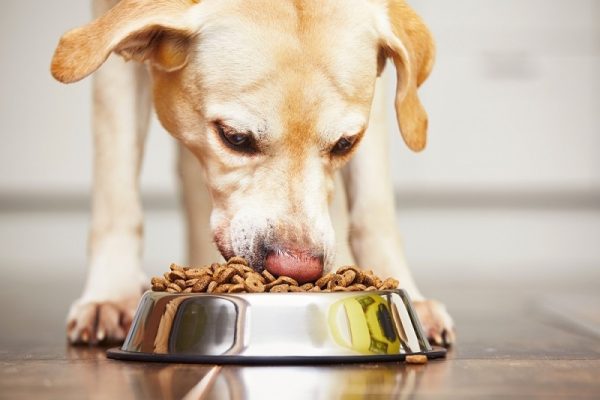Like every dog breed, the Dachshund requires proper nutrition to grow healthy and strong and to stay that way throughout their life. Poor nutrition could lead to serious health problems, lower quality of life, and even a shorter lifespan. Fortunately, there are many high-quality, AAFCO-approved food brands that provide the essential nutrients needed for strong bones, a healthy heart, an optimal circulation system, and a sharp mind. On average, a 20-pound neutered male adult Dachshund with an ideal body condition score requires approximately 550 kilocalories per day to maintain their weight. The exact amount of food will depend on the type of diet. For example, this translates to around 750–800 grams (just under 2 cups) of a breed-specific dry food that provides 357 kilocalories per 100 grams. However, your specific Dachshund’s nutrition needs will vary throughout their life depending on factors like weight, age, activity level, and overall health.
Puppies expend a large amount of energy, so they have specific requirements, in terms of diet and feeding amounts and times, to maintain those energy levels and to build up their bodies as they grow into adulthood. The trick is to make sure you’re feeding them enough so they are not underweight yet not so much that they become overweight.
There is no magic formula to follow that will ensure that your pup is getting the exact amount of food that they need each day to stay happy and healthy. This post should be used as a general guide, but each dog and each diet are unique. For doubts about your Dachshund’s diet, it is best to consult with a veterinarian or a canine nutritionist. They can help formulate a meal plan tailor-made for your dog to meet their individual needs.
Here’s a breakdown of feeding guidelines and more information that will help you better understand how to meet your Dachshund’s nutritional needs throughout their life.

Average Dachshund Feeding Chart: Daily Amounts
| Dachshund’s Weight | Amount of Food for Sedentary Activity Level | Amount of Food for Average Activity Level | Amount of Food for Robust Activity Level |
| 4 pounds (1.8 kg) | ½ cup | 5/8 cup | 5/8 cup |
| 7.5 pounds (3.4 kg) | ¾ cup | 1 cup | 1.25 cups |
| 11 pounds (5 kg) | 1 cup | 1.25 cup | 1 3/8 cups |
| 14.5 pounds (6.5 kg) | 1.25 cups | 1.5 cups | 1.5–1.75 cups |
| 18 pounds (8 kg) | 1.5 cups | 1.75 cups | 1 7/8 cups |
| 22 pounds (10 kg) | 1.75 cups | 2 cups | 2.25 cups |
The exact amount of calories an individual animal needs to maintain a healthy weight is variable and influenced by many factors including genetics, age, breed, and activity level. This tool is meant to be used only as a guideline for healthy individuals and does not substitute veterinary advice
We recommend feeding your dog two or three times a day. Splitting the above amounts into multiple meals will help ensure that their energy levels stay consistent and that they have the fuel that they need to get the most out of their day.

Feeding a Dachshund Puppy vs. an Adult Dachshund
There are a few things to keep in mind when feeding your Dachshund as a puppy compared to feeding them as an adult. The main one is that you should feed your dog food that is made specifically for puppies. It will be higher in calories and protein than food made for all ages or adults. Therefore, a pup may not need as much of it at each mealtime; be sure to check the feeding instructions on the packaging.
Puppy food can be offered to your Dachshund until they are about 12 months old, at which time, they will be ready for adult food. Be sure to get one that is breed specific and includes all the vitamins, minerals, fats, proteins, carbs, and antioxidants necessary for optimal health.
Tips to Avoid Underfeeding and Overfeeding Your Dachshund
It can be tricky figuring out exactly how much is the right amount of food to offer a Dachshund each day. Whether they are neutered or not, their body condition score and their level of physical activity will have an impact on how much food your Dachshund should eat. Here are a few tips to help you avoid underfeeding or overfeeding your dog:
- Monitor Their Weight: Weigh your puppy about once a week and your adult dog once a month to make sure they are gaining as expected as a puppy or maintaining a healthy weight as an adult. If their weight starts to fall, you may need to add more food to their meals. If they are gaining weight, reducing food intake at mealtimes might be necessary.
- Limit Snacks: To help your dog maintain a healthy weight, limit their snacks to no more than 10% of their diet. This means your dog shouldn’t have more than one or two treats a day, at most. Too many treats can add up calorie-wise and result in an overweight dog.
- Keep an Eye on Their Body Condition Score: When you’re petting your dog, gently feel their ribs. You should be able to feel them but just barely; they should not be pronounced, protruding, or even visible. If their ribs are too exposed, they may be underweight. If their ribs cannot be felt at all, they might be overweight. If in doubt, schedule a consultation appointment with a veterinarian.
If you need to speak with a vet but can't get to one, head over to PangoVet. It's our online service where you can talk to a vet online and get the personalized advice you need for your pet — all at an affordable price!


Final Thoughts
Dachshunds must eat nutritious food every day to maintain a happy and healthy life and to ensure that they meet or exceed their expected lifespan. While you should make sure the food that you feed your Dachshund is of high quality, it is also crucial to ensure that you are feeding them the right amount of food every day.
See also:
- Reasons Why Your Dachshund Sleeps So Much & When To be Concerned
- Do Dachshunds Like Water? Facts & FAQ
Featured Image: dogboxstudio, Shutterstock

